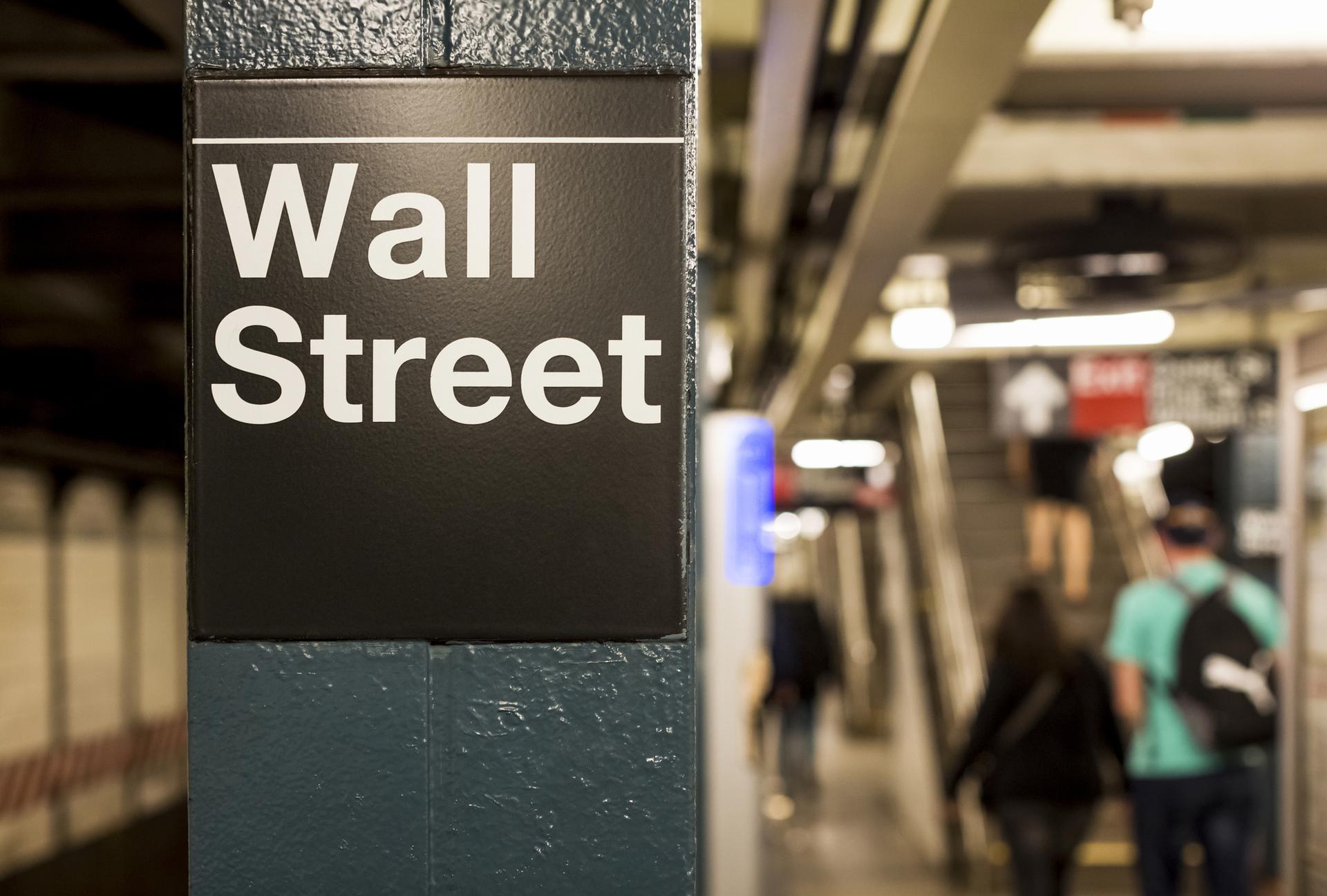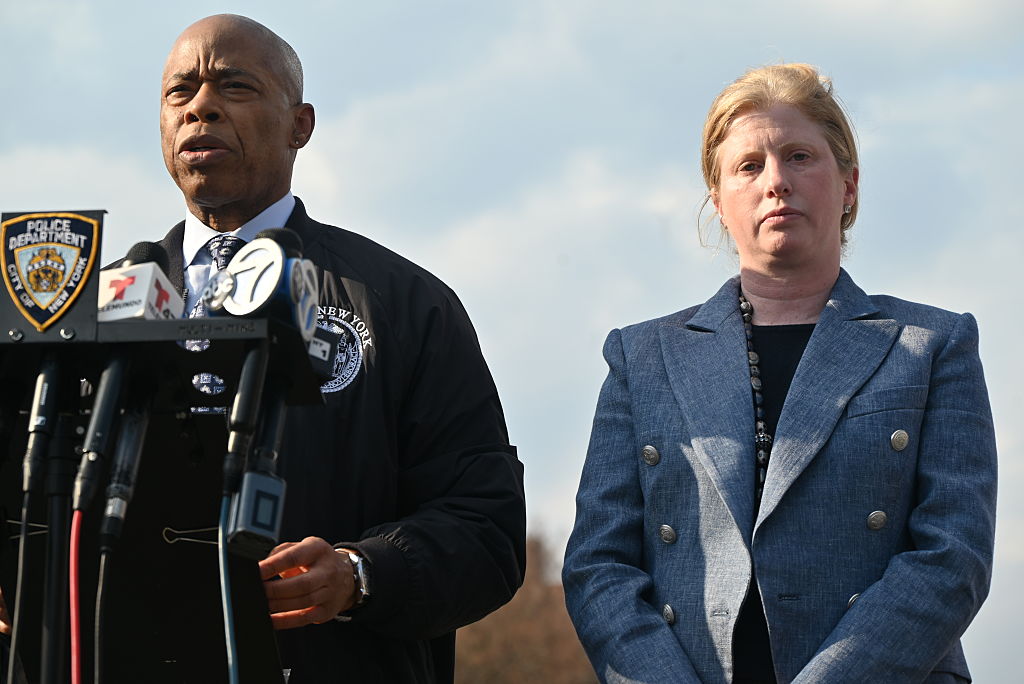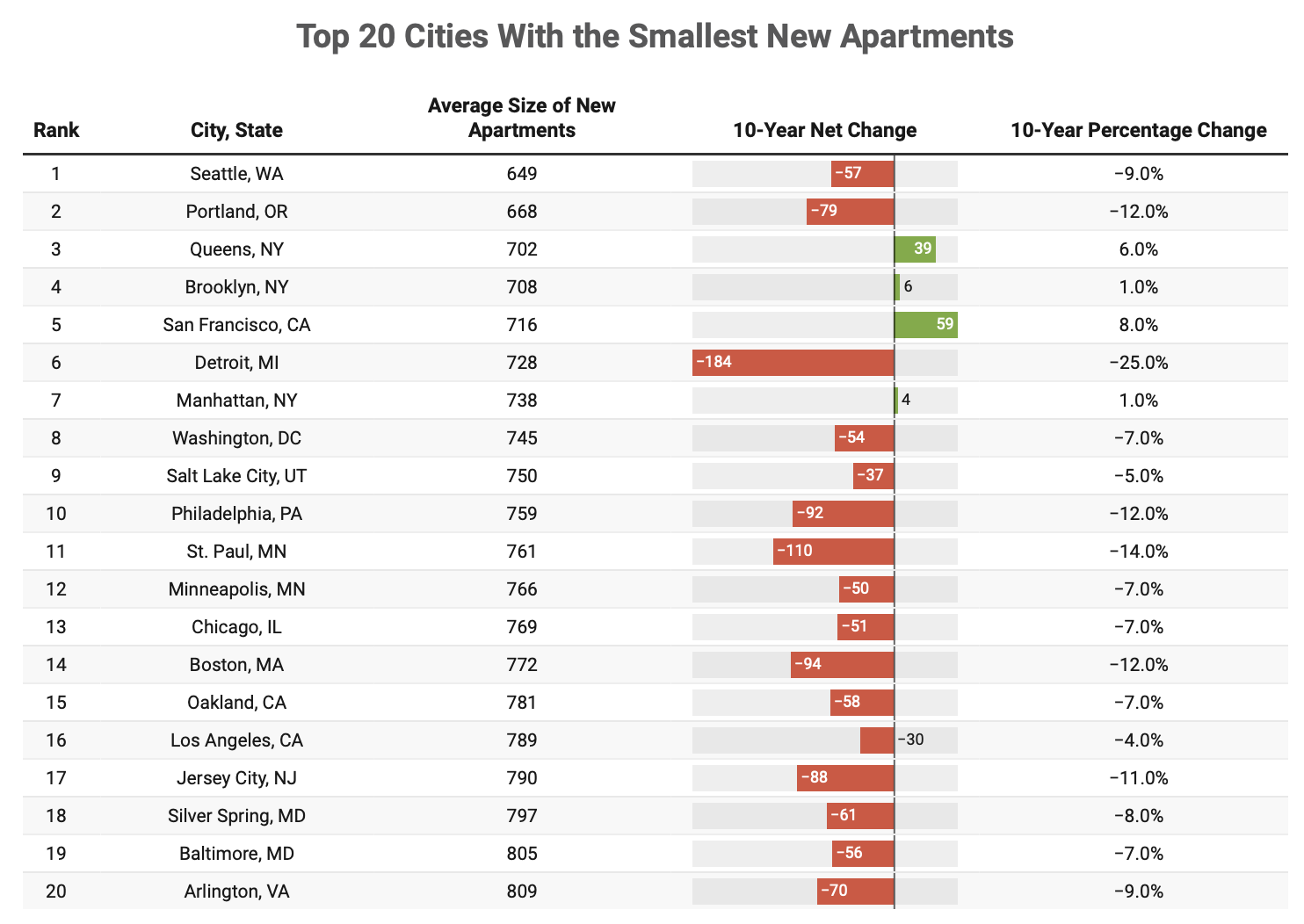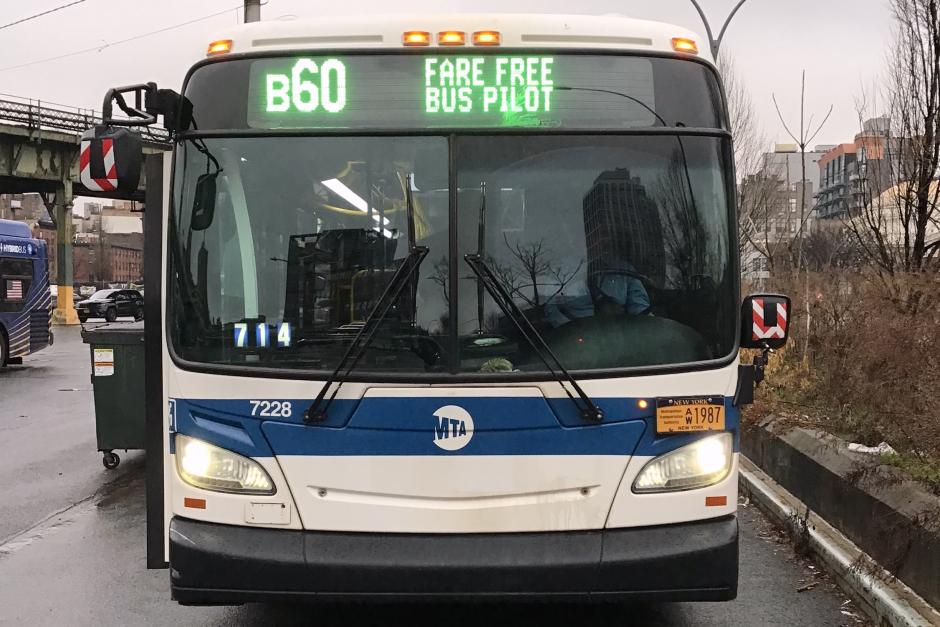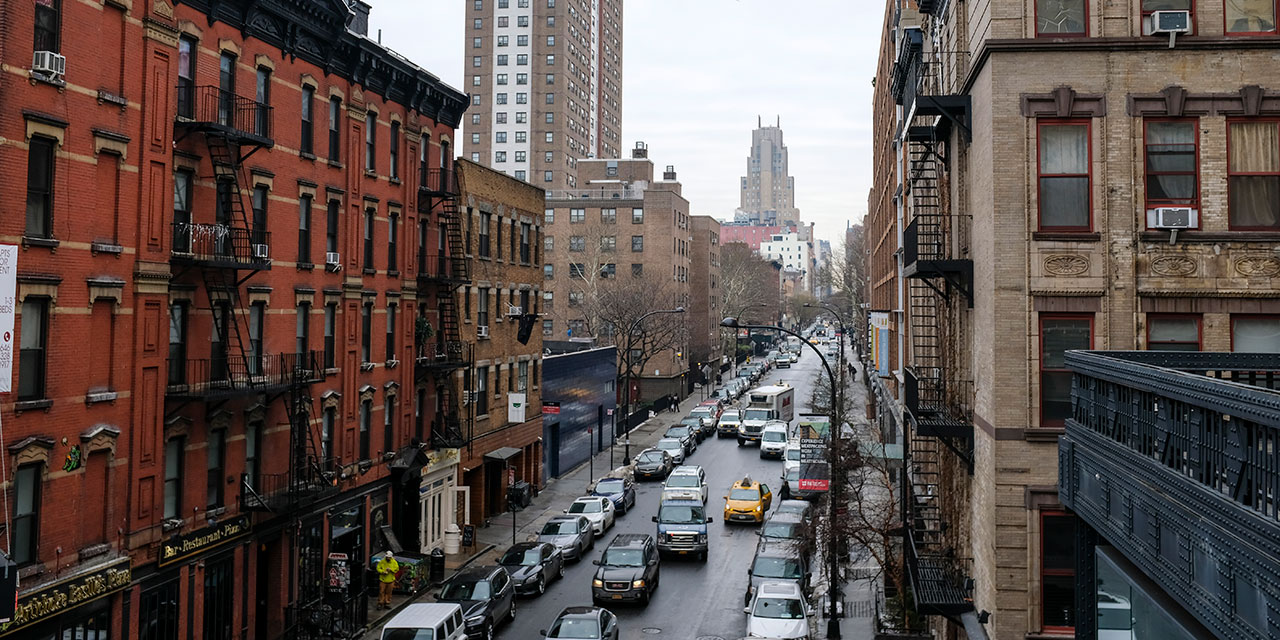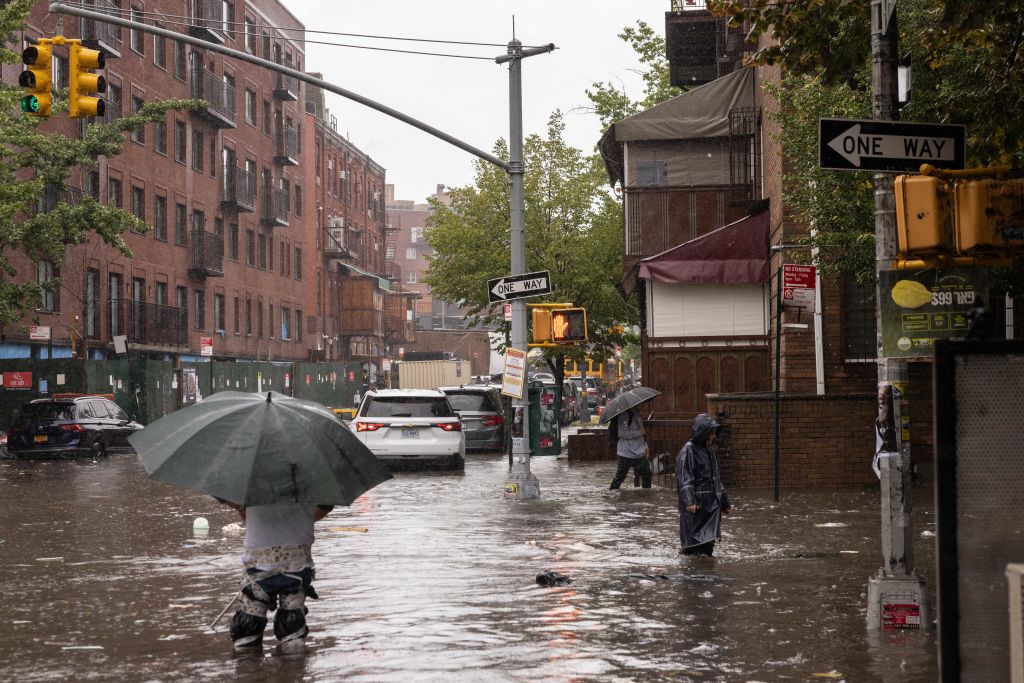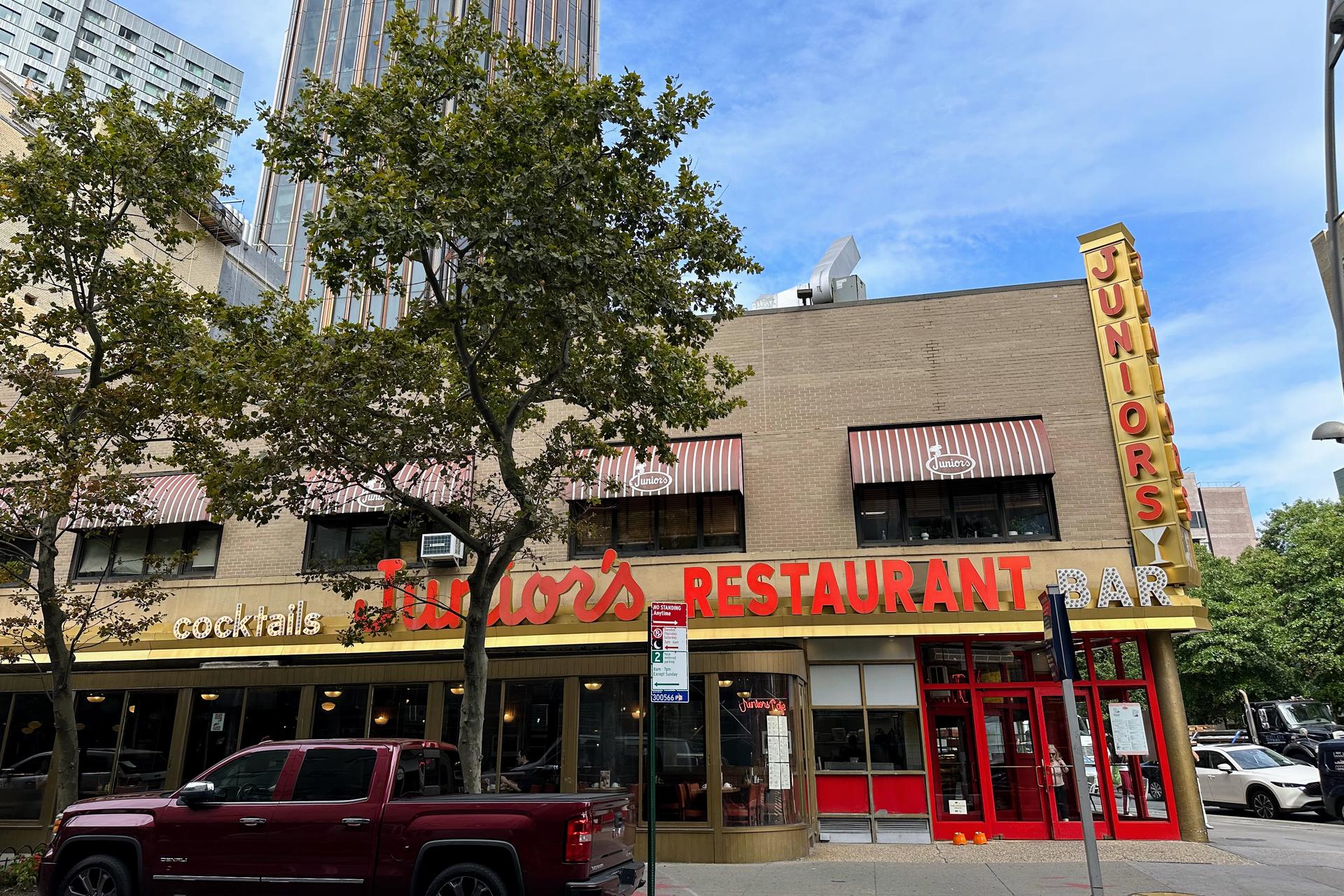|
Forwarded this email? Sign up for free to have it sent directly to your inbox.
|
|
|
Wall Street subway. (Stock photo/Westend61)
|
Welcome back! It’s 11 weeks until the Democratic primaries, and we’ll be covering the economy, guaranteed income, and where to build housing. We’ll also look at the launch of the NYPD’s Q- Teams, and how tiny NYC apartments are compared to the rest of the country.
As always, let me know what you like, and what you think is missing from this newsletter. Email me. Did someone forward you this email? Sign up for free to have it sent directly to your inbox every Friday. And thank you for reading! Liena Zagare
|
There’s not much good news for this global city in President Trump’s vision of an economy that revives the Midwest’s manufacturing base, limits trade, and prioritizes the export of goods over services New York specializes in.
Two of the city’s key service industries—finance and tourism—are reeling from a volatile week on the stock market and a trade war with (at least) China. Greg David, the veteran chronicler of New York business, writes in The City that economic officials expect banker bonuses, which feed the city’s income tax revenues, to decline. Meanwhile, NYC Tourism + Conventions is lowering its forecasts as some foreign tourists avoid a more hostile U.S., and many local businesses grow increasingly anxious.
Retailers are preparing to raise prices in response to shifting tariffs. "We take a little bit of a hit on our margins, but we still have to pass something off to our customers because there's no way anyone in our position can eat 24%,” a seafood importer told Eyewitness News. A champagne importer, sniffing that she can’t exactly substitute “sparkling wine from the Finger Lakes,” also plans price hikes.
Mayoral candidates are eagerly denouncing Trump’s actions — as they rely on optimistic forecasts to plan more spending and only superficial budget cuts. That seems out of touch with a reality in which tariffs threaten city revenues, and the Trump administration appears likely to cut funding to major NYC institutions—like Columbia University—that also serve as top employers.
Meanwhile, in Albany, the state government must also brace for fiscal pressure. Empire Center's Bill Hammond and Manhattan Institutes' E.J. McMahon warn that Governor Hochul should reconsider her ambitious $252 billion budget plan.
Little of this economic and political turbulence is within the next mayor’s control—but whoever takes office must be prepared to make tough decisions. As should those already in power. |
|
|
From Left: Andrew Cuomo, Adrienne Adams, Brad Lander, Scott Stringer, Zellnor Myrie, Jessica Ramos, Zohran Mamdani, Michael Blake, Whitey Tilson. Photos via Getty Images. |
Mayor Eric Adams is running as an independent on Safe Streets, Affordable City line. Bradley Tusk explains the very narrow path to an unlikely Adams' victory in November in Vital City.
Mamdani Pushes Bold Polling: Assemblymember Zohran Mamdani is touting two new polls: 72% of voters support free buses, and 66% back opening government-run grocery stores, two of his key campaign promises. Never mind that Chicago scrapped its city-owned grocery store without so much as getting past the idea phase.
Cuomo's Comeback? Despite criticism over his ties to Republican donors, Andrew Cuomo is racking up endorsements—including from some who once cheered his resignation. The New York Post and The New York Times have tracked them all.
Lander on Mental Health & NYCHA: City Comptroller Brad Lander said he supports Governor Hochul’s involuntary commitment reforms, noting that “The existing law does not require consideration of an individual's full medical history.” He also rolled out his Fix NYCHA, With NYCHA, For NYCHA plan.
Scott Stringer wants voters to text him questions (646-601-5882) and unveiled a detailed plan to improve NYPD officer retention and morale. Highlights: 4-day workweeks, reduced forced overtime, on-site child care, better scheduling, and patrol-focused staffing.
Myrie Talks Sneakers & Politics: Sen. Zellnor Myrie, a self-professed sneakerhead, spoke with influencer Carla Marie Davis at Sole Mate in Brooklyn—chatting about his campaign and kicks (he won't disclose how many pairs he owns).
City Council Speaker Adrienne Adams called Rikers Island a “death camp,” but acknowledged the 2027 closure deadline is unrealistic. Five inmates have died as of April 1, bringing the total to 38 during Mayor Adams’ term (Vera Institute). She also released her plan to provide basic guaranteed income to homeless children (more on that below).
|
Mayor Eric Adams and Police Commissioner Jessica Tisch hold a news conference at the scene where a mother and two children died in a car crash. (Photo by Kyle Mazza/Anadolu via Getty Images) |
|
|
NYPD Launches Quality of Life Teams
Starting Monday, the NYPD will deploy new Quality of Life (Q) teams to respond to common 311 complaints—abandoned vehicles, illegal parking, noise, scooters, and encampments—in six precincts before expanding citywide. The pilot will begin in the 40th Precinct (Bronx); the 60th, 75th, and Police Service Area 1 (Brooklyn); the 101st (Queens); and the 13th (Manhattan), Commissioner Jessica Tisch announced Thursday.
Tisch in the Spotlight
Commissioner Tisch defended the NYPD’s controversial gang database amid City Council efforts to abolish it, just as prosecutors unveiled a major indictment tied to 21 shootings across Manhattan. Taking a critical tool out of Tisch's toolbox—just as she's achieving double-digit declines in serious crime—is foolish. Tisch was also featured in a glowing New York Times profile this week—adding to speculation about her rising political profile.
Mental Health & Public Safety Debates Continue
State Sen. Michael Gianaris says lawmakers are close to a deal with Governor Hochul to expand involuntary commitment laws. But discovery law reform remains a sticking point. The New York Post ran a defense of the governor’s proposal by Hannah Meyers (Manhattan Institute), while New York Focus pushed back, citing court records that contradict Bronx DA testimony. Governor Kathy Hochul’s proposal is marooned in budget negotiations: New York lawmakers' preferred way of making policy changes.
First Deputy Mayor Randy Mastro signed an executive order allowing ICE to reopen an office on Rikers Island, rolling back part of NYC’s longstanding sanctuary city policy. MI's January poll shows that 69% of voters support having the city support deportation efforts for those who've committed crimes or made false asylum claims.
Meanwhile, mental health pressures continue to mount: NYC courts are declaring more defendants unfit for trial, but treatment facilities can’t keep up, Gothamist reports. |
Too Small to Stay: NYC’s Apartment Size Problem |
New York’s new apartments are getting bigger—but only slightly. Since 2015, the average apartment in Queens has reached 702 square feet, while Brooklyn edges out slightly more at 708, according to a recent RentCafe report. Compare that to the national average for new rentals: 908 square feet. A parking space is about 200 square feet. You do the math.
The small gains are concentrated in family-friendly layouts: Queens saw a 123-square-foot increase in three-bedrooms, reflecting developers’ slow shift toward homes that can actually accommodate a household. Manhattan, meanwhile, squeezed a few more square feet into one- and two-bedrooms, but studios and three-bedrooms got smaller. In Brooklyn, one-bedrooms—nearly half of all new construction—lost 45 square feet.
According to the Citizens Housing and Planning Council report from last fall, citywide, 39% of all housing units are studios or one-bedrooms, 32% are two-bedrooms, and 29% have three or more bedrooms, a distribution that hasn't changed much over the last hundred years. The report does not mention how the size of such units has changed over the years, but based on RentCafe's data, apartments built now are smaller than the ones built 10 years ago, on average.
Faced with the current dire housing shortage, it is easy to focus on the number of new units built, but making the city a place where people can come and stay, to build families and grow old, means building an adequate mix of apartment types and sizes. With design and space that allow for some flexibility in living arrangements and room for an inflatable mattress for a guest.
As RentCafe’s report shows, developers can build apartments for families in lower-cost parts of the city. With the City of Yes making it easier to build dorm-style housing—like single-room occupancies (SROs) or co-living spaces—and loosening rules that limit how many apartments can be built on a lot in places like Manhattan and Downtown Brooklyn, it’s likely we’ll see more smaller apartments in those areas.
Bigger apartments alone won’t solve the affordability crisis—but building only for singles and short-term renters is a recipe for churn. Square footage matters. |
The fare-free pilot on five bus routes ended on August 31, 2024. Via MTA |
-
Transportation: Both mayoral frontrunners, Cuomo and Mamdani, want to at least keep experimenting with the idea of free buses, though the initial pilot was hardly a success story, and was discontinued. The MTA case against the federal government to keep congestion pricing likely won’t be decided before mid-summer. And e-bike charging stations are the next thing to clutter NYC sidewalks - city announced a new program this week, intended to combat lithium battery fires, and allowing landlords to make a bit of money.
-
Business: NYC is particularly vulnerable to the economic turbulence caused by the Trump administration: Roughly 20 billion and 260,000 jobs are at risk, with significant implications for local government budgets currently being negotiated.
-
Municipal groceries: 66% of NYC voters want them, according to a recent poll, hoping for lower food prices. But such outcome is unlikely. Groceries are notoriously low margin businesses, and running them, or anything else strictly for public benefit, requires extensive subsidies - NYCHA is not exactly proof such projects work well. So, are such groceries a good idea, or a bad one?
-
Hotels: Hotels would like their taxes go down by almost 50%. As the era of migrant shelters starts to wind down, financially distressed hotels are losing a lucrative lifeline, POLITICO reports. AirBnB is spending big money to elect more amiable legislators.
-
Public Safety: In Brooklyn, assault charges against Councilmember Susan Zhuang were dropped after she completed a restorative justice process with the officer she bit during a protest. And the NYPD is offering a $500 prize in a new essay contest inviting high school students to propose ways to prevent subway surfing.
|
|
|
New Same Old Policy: Guaranteed Income |
Photo by Alex Kent/Getty Images |
City Council Speaker and mayoral candidate Adrienne Adams is proposing what could be the largest guaranteed income program in the U.S., offering monthly payments to more than 20,000 homeless children and young adults in New York City. They would receive $2,500 up front, followed by monthly stipends starting at $1,000, decreasing to $500 over three years.
The program would help lift the target groups out of homelessness, improve health outcomes, save money, and reduce crime, she says. It expands on a $1.5 million City Council-backed initiative supporting the Bridge Project, which gives cash to new mothers. That pilot helped recipients with essentials like baby supplies, housing, food, and education. Similar programs have launched in cities like Los Angeles and Chicago, and Adams is pitching the program as a pragmatic way to “end homelessness for the next generation.”
The challenge with programs like these, my colleague Stephen Eide said in email, is the “dual clientele” dilemma: "It's hard to maximize aid to children without encouraging dependency among parents.”
"Though Speaker Adams’s proposal may sound like a humane way to ensure that resources reach those most in need, handing unrestricted cash to pregnant mothers and families with young children is unlikely to address the core drivers of homelessness in these vulnerable populations, including addiction, severe mental illness, and familial instability,” says MI’s John Ketcham, who also cast doubt on Adams’ prediction that the payments would save the city money by moving people out of shelters. Ultimately, Adams’ proposal is less a true, dramatic shift toward the trendy, if debated, notion of simply paying a universal basic income to everyone — and more a matter of tinkering with the city’s broader welfare system, which shifted in the 1990s toward encouraging work — but has slid away from that mandate in the Adams era.
|
The Big Read: Building In A Flooding City |
Brooklyn street after a heavy rain storm in 2023. (Photo by Yuki Iwamura for The Washington Post via Getty Images) |
A new Regional Plan Association report warns that NYC’s current zoning laws hinder both climate resilience and housing growth.
By 2040, the region will need 1.26 million new housing units—a 24% increase—but existing zoning only allows for 45% of that, leaving a 680,000-unit shortfall. Flood-prone areas like the Rockaways and Canarsie risk losing thousands of homes, while zoning reforms under the “City of Yes” plan could add 82,000 units—an 11% dent in the deficit.
The report calls for major zoning changes to enable compact, transit-oriented development in low-risk areas and sustained infrastructure investment to support both housing and climate goals. (Read The New York Times story on the RPA report, if you prefer.) |
|
|
Junior's Restaurant in Brooklyn. Photo by Liena Zagare |
If you're near downtown Brooklyn, Junior’s is a must-visit. Open since Election Day 1950, this iconic spot at 386 Flatbush Ave. (near DeKalb station) is best known for its legendary cheesecake and stacked deli sandwiches. It’s a no-frills, generous American diner with plenty of booths, tables, and a full bar—open daily from 7 a.m. to 11 p.m. (midnight on weekends).
More than just a restaurant, Junior’s is a political institution. Its Annual Cheesecake Breakfast draws Brooklyn’s power players the Friday before Election Day for informal conversation and photo ops. Even Chuck Schumer and Hakeem Jeffries have held bipartisan meetings here. |
|
|
A weekly newsletter about NYC politics and policy, published by the Manhattan Institute, edited by Liena Zagare. |
|
|
Copyright © 2025 Manhattan Institute, all rights reserved. |
|
|
|

